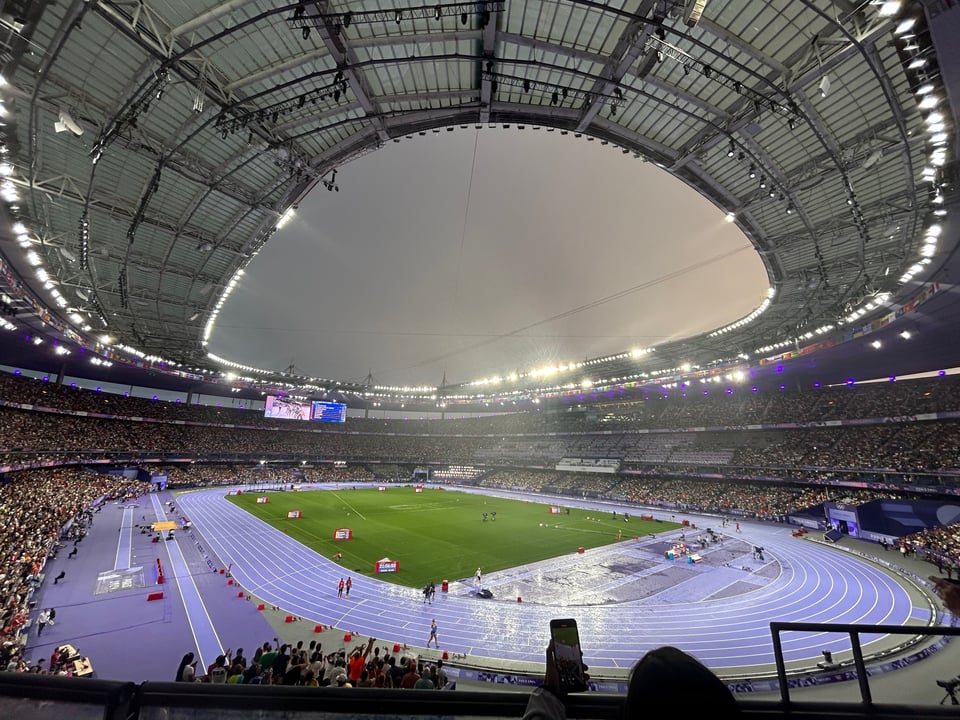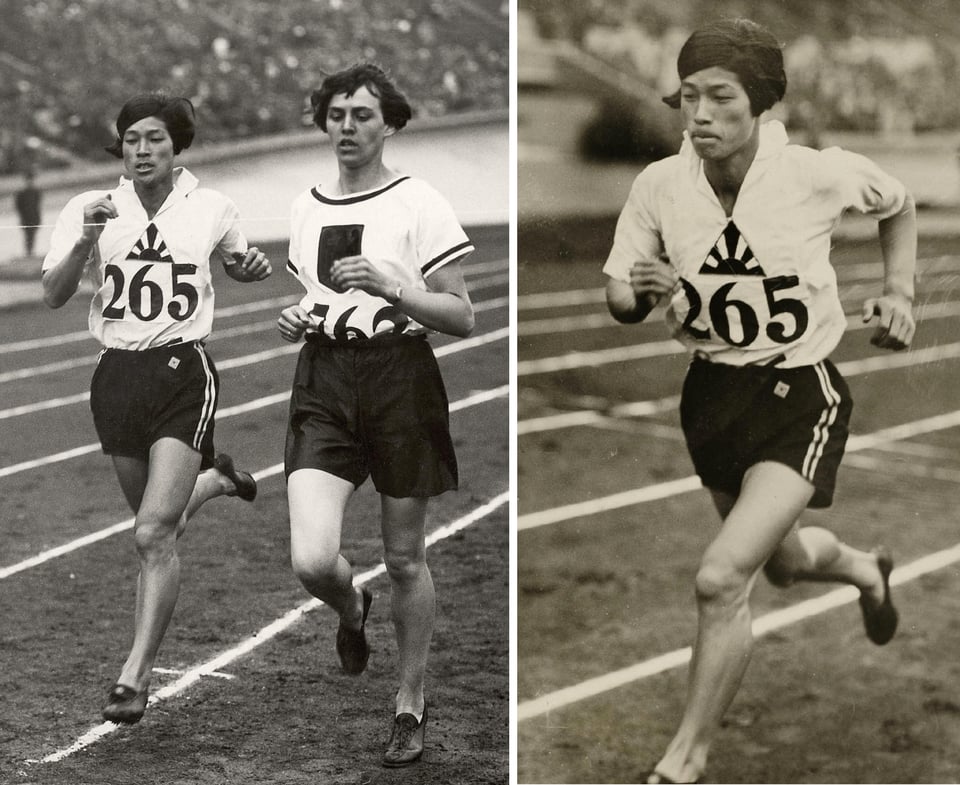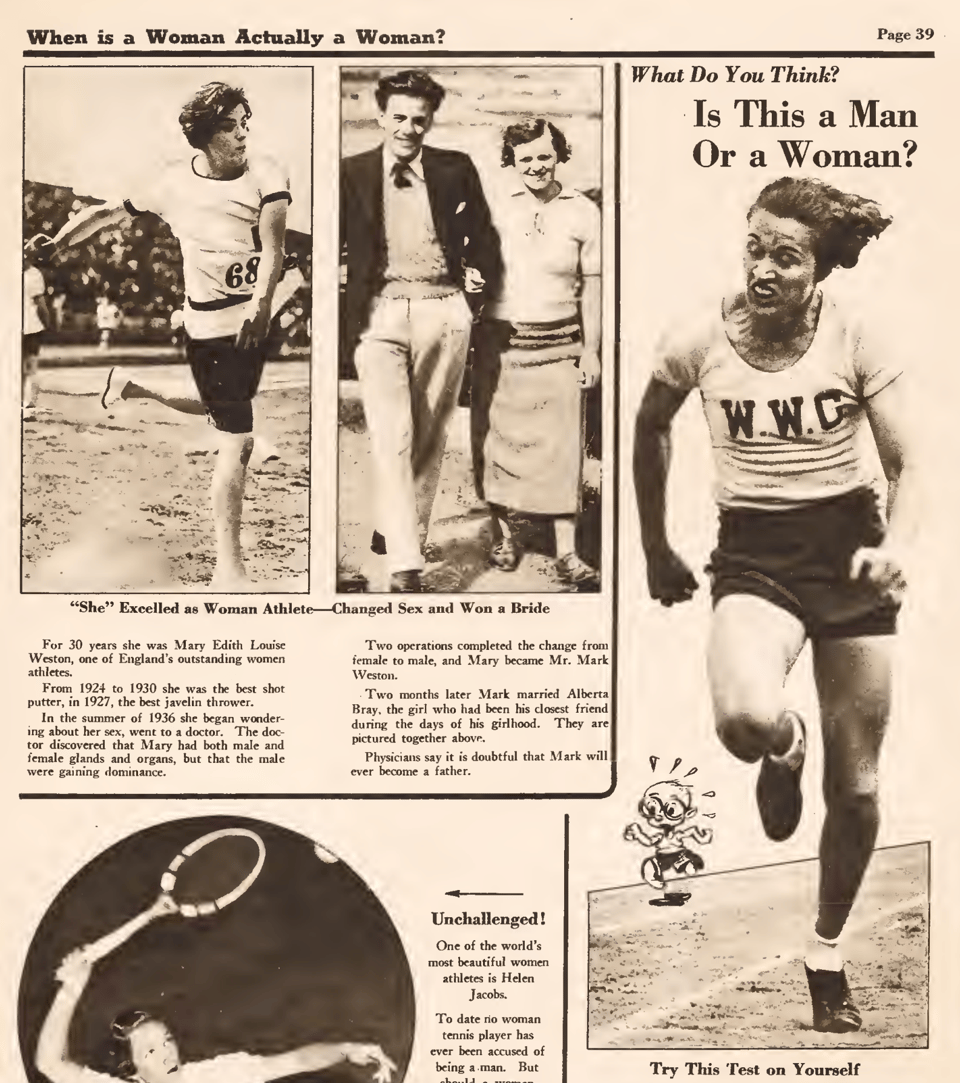TESTED: Boxing updates and final thoughts from Paris

In today's newsletter:
Some small updates on Imane Khelif and Lin Yu-Ting.
An excerpt from a piece I wrote for Defector about the ethics of digging into someone's biology after they've died.
A whole bunch of press I've done about Tested, boxing, and more.
My thoughts about being at the Olympics more generally, when Christine, Max, and others couldn't be.
Hello there,
I'm back from Paris, where I thought I would be taking a vacation. Then, as you know, news broke about the sex testing of Imane Khelif and Lin Yu-Ting and my vacation got a lot less vacationy.
I wrote in this newsletter about the case, how to think about it, and some of the backstory. Below you can find all the various interviews I've done about this with the press.
Ultimately, Khelif and Lin both won gold in their respective weight classes. If you haven't seen photos of them celebrating their wins, I highly recommend looking those up. Such joy! Congrats to both fighters.
Since I last wrote to you, the IBA held a somewhat baffling press conference. They still have yet to actually explain what test was done on these two women. The accusations of foreign interference have increased. Khelif spoke with the press, saying “I send a message to all the people of the world to uphold the Olympic principles and the Olympic Charter, to refrain from bullying all athletes, because this has effects, massive effects. It can destroy people, it can kill people’s thoughts, spirit and mind. It can divide people. And because of that, I ask them to refrain from bullying.”
And with the gold medal wins the folks up in arms about these women competing have gotten even more frothy. Later this week I'm going to publish a newsletter that I had already been working on, about the ways in which the current moral panic about the existence of trans people has changed the conversation about sex testing in the last few years.
I watched both gold medal fights, and one thing that really struck me was just how... normal these women look? If you're like me, you've been watching a lot of Olympics. Which means you've seen a lot of really strong people. Lin and Khelif are certainly two of them, but I'm struck by the fact that compared to many other athletes in the games, they’re honestly not that jacked? Look at Valarie Allman, or Amit Elor, or Alicia Hoskin.
This is not to take anything away from Khelif or Lin, their bodies and muscles are exactly how they should be to win at their respective weight classes — and they are both clearly super strong! It's was just a reminder for me of how subjective all of this is. Who decides how much muscle is "manly?" (And, this should probably go without saying but I was raised in the era of bad faith internet readers: I am in no way suggesting that these other women be tested or questioned!)
It reminded me once again of Hitomi Kinue, the Japanese runner who took silver in the 1928 Olympics. Newspapers wrote about her muscularity, saying "she had all the power of a halfback." Here’s what she looked like:

One other historical parallel at play before we move on: on Sunday it was reported that Khelif had hired a legal team, and that they were filing a legal complaint on her behalf. The letter begins with the line "Apres le temps sportif, vient le temps judiciaire." Which translates to "After the sporting time, comes the legal time." The complaint was filed with the "the anti-online hatred center of the Paris public prosecutor's office"1 and argues that the case "will determine who initiated this misogynistic, racist and sexist campaign but will also have to focus on those who fueled this digital lynching."2
Some reporting I've seen says that Lin Yu-Ting of Taiwan may join her on the case. I haven't been able to independently verify that.
I'm not a lawyer and I certainly am not familiar with defamation laws in France, so I don't have much to say about how likely it is that this case will go anywhere. (I know from personal experience that getting any kind of legal remedy for online harassment and threats can be very hard.) But there is some historical precedent around cases like this! Here are two examples that came to mind for me immediately:
On episode two, we told you about the newspaper article about Helen Stephens accusing her of being “too fast” to be a woman. What we didn’t tell you, is that she actually sued Look Magazine over a related story, which used her picture and the headline “Is This A Man Or A Woman?” And she won! The court awarded her $4500, according to the papers, which is the equivalent of $98,179 today.
In Caster Semenya's memoir, she tells the following story about a strip club in Johannesburg using her image: “The owner of Teazers had come up with some clever advertising for his club. A giant billboard on a main highway in Johannesburg that featured a naked, blonde, White woman with the words “No Gender Testing Necessary” written across the bottom half of her body.” Caster’s team sued, and won R20,000 (about $1,000). > > Obviously these are not legal precedent that could be used in this case, but it's a reminder that this kind of case isn't new.

What do we deserve to know about the dead?

I wrote a piece for Defector about the ethics around discussing the private medical information of dead athletes. This is something I struggled with during reporting Tested. In many cases, the athletes we're talking about did not want their private business shared in the press. And now, here I am, talking about it for an audience of however many people (I actually still have no idea how many people have listened to Tested). How do you balance the desire to help people understand the history and context of this topic, with the desires of the women we're talking about? Here's an excerpt from the piece:
When I opened that police document, I was surprised to find a full-body nude photograph of Ratjen in heels. Reading papers about him, you’ll find historians using these photos and the police report to speculate about his genitals, debating whether or not Ratjen was intersex, or actually a “biological male” his family chose to raise as a girl for some reason.
There’s also the story of Foekje Dillema, a Dutch track star from the 1950s, who had a genetic condition called “46,XX/46,XY mosaic condition.” We only know this about her because after her death, her family gathered up skin cells from her clothes and commissioned a study about her biology. Dillema had already been humiliated once: In 1950, she refused to undergo a “gender verification” test, which at the time would have been an invasive physical examination of her genitalia. When she declined the test, the International Association of Athletics Federations (now known as World Athletics) banned her from competition and stripped her of her medals. According to one biography, she returned home and didn’t leave the house for over a year. Dillema kept the secret of her biology for 60 years, but now it is public information, available to anybody with an internet connection.
Every time I came across an example like this in my research, I felt many conflicting feelings about it. Should we really be “uncovering the true sex” of these athletes after their deaths? Whose business is it what Ratjen or Walsh’s genitalia looked like, or what was going on inside of Dillema’s cells? Why are people so set on uncovering the “truth” behind these athletes who were already ostracized and, in some cases, kicked out of sports while they were alive? Who does it serve to know this information? Does it matter that these women never wanted this to be known? Is it better to tell these stories than to keep them hidden?
You can read the whole thing here. Defector is by far my favorite sports website, and they do some really amazing work, so if you're not a subscriber I highly recommend it!
More me in more places
If you want to hear/read me talking about the connection between the long history of sex testing and this most recent uproar, boy do I have some links for you! I did many of these interviews between 10pm and 2am France time, so if anything doesn't make sense, please blame the sleep deprivation.
I spoke with Soleil Ho, at the SF Chronicle, who is one of my favorite culture writers.
Hear me talk about the case (and Tested more generally) with Sarah Spain, on her new podcast, Good Game. I'm incredibly honored (and baffled) to be a guest on a show that has also interviewed absolutely legends like Abby Wambach, Tierna Davidson and Sheryl Swoops. Listen to this episode with Nikki Hiltz too!
I was on Slate's daily podcast What Next.
I spoke with CBC's daily show Press Play.
I also talked to KCRW's Press Play about boxing and its connection to sex testing history.
Here’s me on NPR’s The Sunday Story. > - And finally, I was on NPR's Morning Edition this morning, which is a show that I never thought I'd ever wind up on. I'll confess I don't think I did a great job on this one. We recorded the conversation once and I felt good about it but then we were told it was way too long and I got a little flustered and my shorter answers were not very good. I am not built for short form!
I didn't talk to them but the Star Ledger mentioned Tested, which is exciting for me personally because I grew up reading that paper! (They had a much better sports section than the NYT, and they had comics, which made them the vastly superior paper in my mind.)
If you want to read/hear people who are not me talking about this case here are some additional links:
Lindsay Gibbs at Time.
Sylvia Camporesi, who you heard on the podcast, wrote a piece about the conflation of trans and DSD athletes in the boxing case.
A piece specifically on the media portrayal of the boxing story in Italy.
If anybody reading this has favorite links to share on this topic let me know! I’ve been trying to keep up but I’ve also technically been on vacation.

Final thoughts from the Stade de France
I bought my Olympics tickets back when Christine and Max were still hoping to be there.4 Athletics tickets sell out fast, since it's one of the marquis events of the games, and I had to jump on them if I wanted to potentially see them run. Of course, as you all know, they weren't there. No DSD athlete set foot on the track this Olympics, as far as I know.
Being in the stands at the Olympics was exhilarating, and also a little heartbreaking. I texted with Max about the Olympics and she told me that she watched, but that it was "very sad."
I have to imagine that World Athletics saw this Olympics as a huge success. There were incredible triumphs at Stade de France. There were surprises, upsets and world records. I saw St. Luica win their first ever Olympic medal, a gold in the women's 100 meters. I saw Mondo Duplantis break the world record again. I watched Femke Bol somehow singlehandedly sprint her 4x400 relay team to victory over an American team that had broken the world record at that event in the heats.
The controversies that arose at Stade de France were those of the usual athletics variety — did Faith Kipyegon push Gudaf Tsegay? What the hell happened in that men's 5,000 meter heat? Should they have paused the men's shot put for the rain?
There was no conversation about "controversial runners" like there was in Tokyo. Nobody was introduced as a "DSD athlete" by the media. Nobody talked about whether certain athletes had an "unfair advantage."2
It reminded me of something that the IOC said in the past, during the era of chromosome tests. In 1987 Prince Alexandre de Merode — head of the IOC's medical commission — wrote a letter to those arguing that he should drop these tests. In it, he explains that one of the main reasons for these tests was the fact that "incessant denunciations having their origin in the Olympic Village, accompanied by persistent rumours widely echoed by the media, were besmirching sport and the reputation of the persons concerned." He goes on to say that "since 1968, the denunciations and rumours have ceased and the scandals have disappeared. We have thus achieved our aims."
In other words, these tests had done their job, not because they had caught anybody cheating but because they had ended speculation by the media and the public about the sex of the athletes at the games — speculation just like we have seen around Lin and Khelif.
The Olympics are a bit like Disneyland. The goal is to put on a sporting event, sure, but perhaps just as important is the grand narrative of the thing. The clean, posh, well designed and well executed world of fantasy that the host city constructs. Before the games, Paris forcibly removed unhoused folks and migrants from the streets. This isn't a Paris exclusive, it's happened at nearly every Olympic games. In 1996 Atlanta removed 9,000 unhoused people either by throwing them in jail or otherwise forcing them out of the city, in some cases by giving them one-way bus tickets to other states.
This commitment to a candy coating is also one of the reasons that Olympic athletes are not allowed to display political symbols (and in fact this year, Afghan breaker Manizha Talash team was disqualified for wearing a "Free Afghan Women" cape to her competition). Reminders of the culture war raging outside the walls of the games are the exact kind of thing that the Olympics dreads. A key part of a "successful" Olympics is the veneer, the storyline, the magic of going to a place and forgetting the rest of the world exists.
And for their part World Athletics got that. I wonder if they watched the "scandal" surrounding boxing and felt somehow vindicated. Because they had no such thing. They had managed to avoid it, by not having any of those athletes present in the first place.
In their press newsletter, World Athletics summed up the 2024 Olympic games this way: "The Paris 2024 Olympic Games has further demonstrated the global reach of athletics, with a record for the most countries winning gold in a single Games having been set." World Athletics president, Sebastian Coe said: “Paris 2024 has been an absolutely spectacular Olympic Games for athletics."
Walking up to the Stade de France, you see a big sign that says "Games Wide Open." But they're not. Not for everybody, that is.
Footnotes (because yes, this is the kind of newsletter that has footnotes)
This actually will not be the first case filed at this office coming out of this Olympic games. The very same office has opened a case to investigate harassment and death threats aimed at Thomas Jolly, the artistic director of the opening ceremony. Jolly alleges that he has been facing death threats and harassment, largely stemming from his use of drag queens in a segment that some assumed was based on the Last Supper (Jolly says that the painting was not his inspiration).
I'll be very interested to see the line of argumentation that the lawyers use here. The harassment that Khelif and Lin endured was awful, and/but there's a tricky line to walk here I think. Will they argue that simply being called trans is bullying? I understand that for Khelif and Lin it amounts to misgendering them, which is a form of bullying. And it also strikes me that if not handled with care, that could be a precedent we might not want to set. It reminds me a bit of the cases in which people have won defamation claims for situations in which it was suggested that they were HIV positive. Because that suggestion is still so negative that it rises above the level of the usual bar for defamation in the United States.
The story that really stood out to me here, in terms of advantage, is that of the Pakistani javelin thrower Arshad Nadeem. Nadeem reportedly didn't have enough money to buy a top end javelin or even go to the Olympics — his community helped band together to send him. On the show we talk about how some of the athletes impacted by these eligibility rules barely have enough money to feed themselves, while other athletes have entire teams of people and nutritionists at their disposal. If the goal is fairness, where is the effort to provide equivalent resources to athletes?
Yes, bought, I didn't have a press pass. Press passes for the Olympics are VERY hard to get, especially for freelancers. They get doled out years in advance, and only to specific media partners. There was no chance I was getting one. So I paid my own money to go to Paris.
Upcoming newsletters
I have a bunch of interesting stuff planned for the next few weeks including:
An essay about how transphobia has shifted the conversation about sex testing.
A post from my colleague Lisa Pollak about a whole big chunk of history that we couldn't include.
An interview with Amanda Lock Swarr, who wrote Envisioning African Intersex, about the long and sordid history of assuming that black Africans are more likely to be intersex.
An interview with some legal scholars about a new kind of challenge that might help DSD athletes compete.
An essay about animal analogies, and why we mostly steered away from them on the show.
Updates on Max's CAS case and the rest of Christine's season.